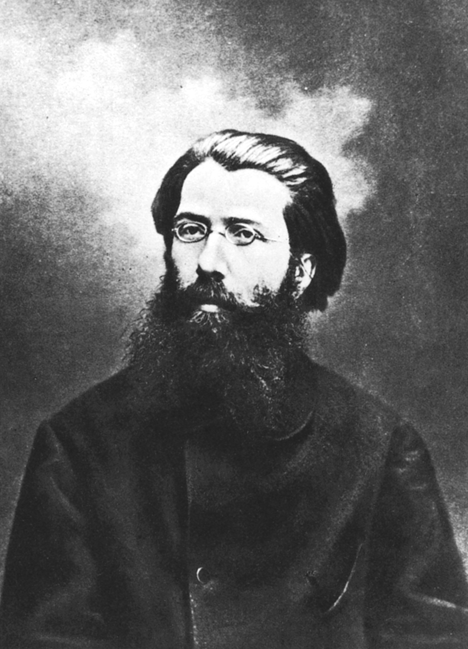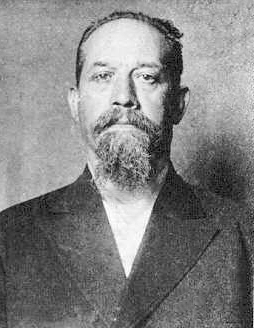|
Communisation
Communization theory (or communisation theory in British English) refers to a tendency on the ultra-left that understands communism as a process that, in a social revolution, immediately begins to replace all capitalist social relations with communist ones, rejecting transitional stages. Thus it rejects the role of the dictatorship of the proletariat, which it sees as reproducing capitalism. There exist two broad trends within communization theory: a ‘Marxist’ one (exemplified by Gilles Dauvé, Théorie Communiste, and later, Endnotes) and an ‘Anarchist’ one (represented by Tiqqun, The Invisible Committee, and Hostis). The term "communization" in this context was coined by Dauvé, following the uprising of May 68, in an attempt to explain its failure. Dauvé's theory synthesised the council communist emphasis on proletarian self-emancipation and rejection of the party-form with Italian communist Amadeo Bordiga’s critique of what he saw as capitalism in the S ... [...More Info...] [...Related Items...] OR: [Wikipedia] [Google] [Baidu] |
Ultra-leftism
In Marxism, ultra-leftism encompasses a broad spectrum of revolutionary Marxist currents that are anti-Leninist in perspective. Ultra-leftism distinguishes itself from other left-wing currents through its rejection of electoralism, trade unionism, and national liberation. The term is sometimes used as a synonym of left communism. "Ultra-left" is also commonly used as a pejorative by Marxist–Leninists and Trotskyists to refer to extreme or uncompromising Marxist sects. Historical usage The term ''ultra-left'' is rarely used in English. Instead, people tend to speak broadly of left communism as a variant of traditional Marxism. The French equivalent, , has a stronger meaning in that language and is used to define a movement that still exists today: a branch of left communism developed by theorists such as Amadeo Bordiga, Otto Rühle, Anton Pannekoek, Herman Gorter, and Paul Mattick, and continuing with more recent writers, such as Jacques Camatte and Gilles Dauvé. T ... [...More Info...] [...Related Items...] OR: [Wikipedia] [Google] [Baidu] |
British English
British English is the set of Variety (linguistics), varieties of the English language native to the United Kingdom, especially Great Britain. More narrowly, it can refer specifically to the English language in England, or, more broadly, to the collective dialects of English throughout the United Kingdom taken as a single umbrella variety, for instance additionally incorporating Scottish English, Welsh English, and Northern Irish English. Tom McArthur (linguist), Tom McArthur in the Oxford English Dictionary, Oxford Guide to World English acknowledges that British English shares "all the ambiguities and tensions [with] the word 'British' and as a result can be used and interpreted in two ways, more broadly or more narrowly, within a range of blurring and ambiguity". Variations exist in formal (both written and spoken) English in the United Kingdom. For example, the adjective ''wee'' is almost exclusively used in parts of Scotland, north-east England, Northern Ireland, Ireland ... [...More Info...] [...Related Items...] OR: [Wikipedia] [Google] [Baidu] |
Individualist Anarchism
Individualist anarchism or anarcho-individualism is a collection of anarchist Anarchism is a political philosophy and Political movement, movement that seeks to abolish all institutions that perpetuate authority, coercion, or Social hierarchy, hierarchy, primarily targeting the state (polity), state and capitalism. A ... currents that generally emphasize the individual and their Will (philosophy), will over external determinants such as groups, society, traditions, and ideological systems. Individualist anarchism can be divided into two main distinct movements, each with its own ideological orientations and choices. On one hand, there is American individualist anarchism, which began with Josiah Warren, Warren in the 1860s. It focuses primarily on economic freedom, drawing upon Max Stirner, Stirner's egoist anarchism and Pierre-Joseph Proudhon, Proudhon's Mutualism (economic theory), mutualism, and develops perspectives that are notably financial in nature. Most Individ ... [...More Info...] [...Related Items...] OR: [Wikipedia] [Google] [Baidu] |
William Morris
William Morris (24 March 1834 – 3 October 1896) was an English textile designer, poet, artist, writer, and socialist activist associated with the British Arts and Crafts movement. He was a major contributor to the revival of traditional British textile arts and methods of production. His literary contributions helped to establish the modern fantasy genre, while he campaigned for socialism in ''fin de siècle'' Great Britain. Morris was born in Walthamstow, Essex, to a wealthy middle-class family. He came under the strong influence of medievalism while studying Literae Humaniores, classics at Oxford University, where he joined the Birmingham Set. After university, he married Jane Morris, Jane Burden, and developed close friendships with Pre-Raphaelite artists Edward Burne-Jones and Dante Gabriel Rossetti and with Gothic Revival architecture, Neo-Gothic architect Philip Webb. Webb and Morris designed Red House, Bexleyheath, Red House in Kent where Morris lived from 1859 t ... [...More Info...] [...Related Items...] OR: [Wikipedia] [Google] [Baidu] |
Propaganda Of The Deed
Propaganda of the deed, or propaganda by the deed, is a type of direct action intended to influence public opinion. The action itself is meant to serve as an example for others to follow, acting as a catalyst for social revolution. It is primarily associated with acts of violence perpetrated by proponents of insurrectionary anarchism in History of anarchism, the late 19th and early 20th century, including bombings and assassinations aimed at Statism, the state, the ruling class in a spirit of anti-capitalism, and church arsons targeting religious groups, even though propaganda of the deed also had nonviolent resistance, non-violent applications. These acts of terrorism were intended to ignite a "spirit of revolt" by demonstrating the state, the middle and upper classes, and religious organizations were not omnipotent as well as to provoke the State to become escalatingly repressive in its response. The 1881 London Social Revolutionary Congress gave the tactic its approval. Theore ... [...More Info...] [...Related Items...] OR: [Wikipedia] [Google] [Baidu] |
Unemployment
Unemployment, according to the OECD (Organisation for Economic Co-operation and Development), is the proportion of people above a specified age (usually 15) not being in paid employment or self-employment but currently available for work during the reference period. Unemployment is measured by the unemployment rate, which is the number of people who are unemployed as a percentage of the labour force (the total number of people employed added to those unemployed). Unemployment can have many sources, such as the following: * the status of the economy, which can be influenced by a recession * competition caused by globalization and international trade * new technologies and inventions * policies of the government * regulation and market * war, civil disorder, and natural disasters Unemployment and the status of the economy can be influenced by a country through, for example, fiscal policy. Furthermore, the monetary authority of a country, such as the central bank, can in ... [...More Info...] [...Related Items...] OR: [Wikipedia] [Google] [Baidu] |
Insurrectionary Anarchism
Insurrectionary anarchism is a revolutionary theory and tendency within the anarchist movement that emphasizes insurrection as a revolutionary practice. It is critical of formal organizations such as labor unions and federations that are based on a political program and periodic congresses. Instead, insurrectionary anarchists advocate informal organization and small affinity group based organization. Insurrectionary anarchists put value in attack, permanent class conflict and a refusal to negotiate or compromise with class enemies. Associated closely with the Anarchism in Italy, Italian anarchist movement, the theory of insurrectionary anarchism has historically been linked with a number of propaganda of the deed, high-profile assassinations, as well as the bombing campaigns of the Galleanisti and Informal Anarchist Federation (FAI). History Development Among the earliest inspirations for insurrectionary anarchism was Max Stirner's 1845 book ''The Ego and Its Own'', a tract t ... [...More Info...] [...Related Items...] OR: [Wikipedia] [Google] [Baidu] |
Reformism
Reformism is a political tendency advocating the reform of an existing system or institution – often a political or religious establishment – as opposed to its abolition and replacement via revolution. Within the socialist movement, reformism is the view that gradual changes through existing institutions can eventually lead to fundamental changes in a society's political and economic systems. Reformism as a political tendency and hypothesis of social change grew out of opposition to revolutionary socialism, which contends that revolutionary upheaval is a necessary precondition for the structural changes necessary to transform a capitalist system into a qualitatively different socialist system. Responding to a pejorative conception of reformism as non- transformational, philosopher André Gorz conceived non-reformist reform in 1987 to prioritize human needs over capitalist needs. As a political doctrine, centre-left reformism is distinguished from centre-right or pra ... [...More Info...] [...Related Items...] OR: [Wikipedia] [Google] [Baidu] |
Peter Kropotkin
Pyotr Alexeyevich Kropotkin (9 December 1842 – 8 February 1921) was a Russian anarchist and geographer known as a proponent of anarchist communism. Born into an aristocratic land-owning family, Kropotkin attended the Page Corps and later served as an officer in Siberia, where he participated in several geological expeditions. He was imprisoned for his activism in 1874 and managed to escape two years later. He spent the next 41 years in exile in Switzerland, France (where he was imprisoned for almost four years) and England. While in exile, he gave lectures and published widely on anarchism and geography. Kropotkin returned to Russia after the Russian Revolution in 1917, but he was disappointed by the Bolshevik state. Kropotkin was a proponent of the idea of Libertarian socialist decentralization, decentralized communist society free from central government and based on voluntary associations of self-governing communities and worker-run enterprises. He wrote many books, pamp ... [...More Info...] [...Related Items...] OR: [Wikipedia] [Google] [Baidu] |
The Conquest Of Bread
''The Conquest of Bread'' is an 1892 book by the Russian anarchist Peter Kropotkin. Originally written in French, it first appeared as a series of articles in the anarchist journal ''Le Révolté''. It was first published in Paris with a preface by Élisée Reclus, who also suggested the title. Between 1892 and 1894, it was serialized in part in the London journal ''Freedom'', of which Kropotkin was a co-founder. In the work, Kropotkin identified what he considered to be the defects of the economic systems of feudalism and capitalism, and argued that these systems thrive on and maintain poverty and scarcity. He proceeded to propose a more decentralized economic system based on mutual aid and voluntary cooperation, asserting that the tendencies for this kind of organization already exist, both in evolution and in human society. ''The Conquest of Bread'' has become a classic of political anarchist literature. It was heavily influential on both the Spanish Civil War and the Occ ... [...More Info...] [...Related Items...] OR: [Wikipedia] [Google] [Baidu] |
Anti-statism
Anti-statism is an approach to social, economic or political philosophy that opposes the influence of the state over society. It emerged in reaction to the formation of modern sovereign states, which anti-statists considered to work against the interests of the people. During the 19th century, anarchists formulated a critique of the state that upheld the inherently cooperative and decentralised aspects of human society. In the 20th century, anti-state neoliberals sought to cut state investment in the public sector and expand investment in the private sector. Other anti-state social movements sought to overthrow states through guerrilla warfare or limit states by establishing autonomous local institutions. Background The modern conception of the sovereign state emerged in the wake of the Peace of Westphalia, which defined the rights, obligations and boundaries of states, replacing the old system of feudalism. The consolidation of these new European states was supported by the ... [...More Info...] [...Related Items...] OR: [Wikipedia] [Google] [Baidu] |
Capitalism
Capitalism is an economic system based on the private ownership of the means of production and their use for the purpose of obtaining profit. This socioeconomic system has developed historically through several stages and is defined by a number of basic constituent elements: private property, profit motive, capital accumulation, competitive markets, commodification, wage labor, and an emphasis on innovation and economic growth. Capitalist economies tend to experience a business cycle of economic growth followed by recessions. Economists, historians, political economists, and sociologists have adopted different perspectives in their analyses of capitalism and have recognized various forms of it in practice. These include '' laissez-faire'' or free-market capitalism, state capitalism, and welfare capitalism. Different forms of capitalism feature varying degrees of free markets, public ownership, obstacles to free competition, and state-sanctioned social poli ... [...More Info...] [...Related Items...] OR: [Wikipedia] [Google] [Baidu] |





